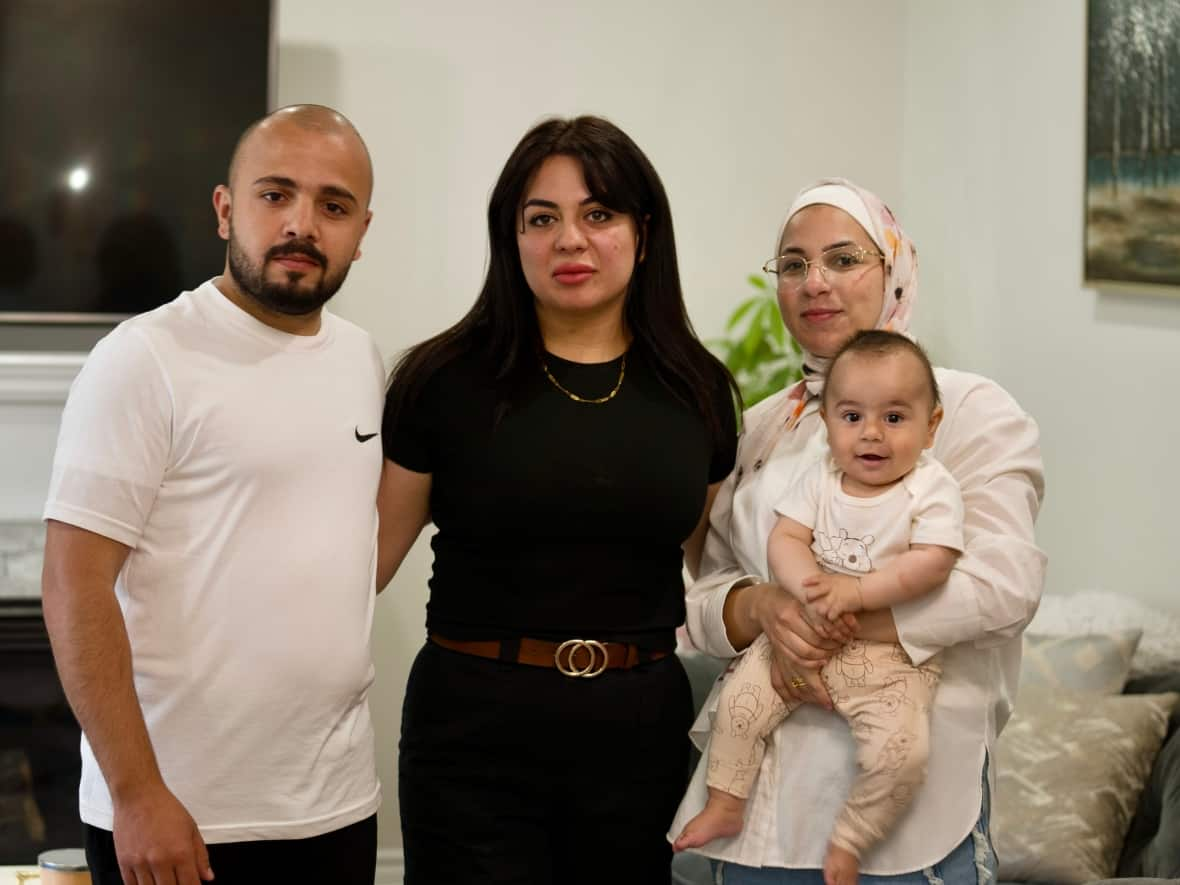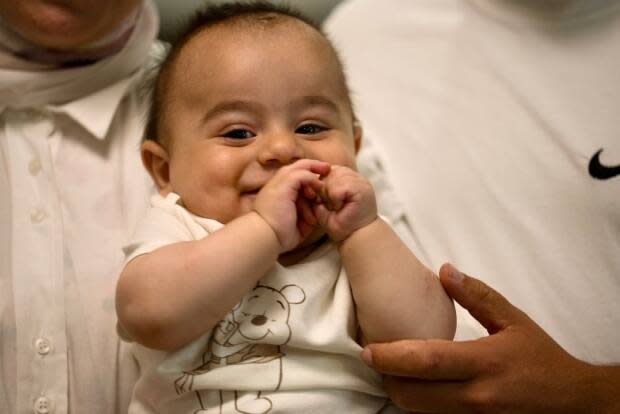As Gazans slowly start to arrive in Canada, their families fear for those left behind

Tears streaming down her cheeks, Abeer Abusharar sat with her brother Oun, his wife Haneen and their son Sanad as they crowded around a cell phone in Ottawa waiting anxiously for her little brother to pick up.
The phone has been Abeer's lifeline to her family in Gaza since the Israel-Hamas war began last October. Until very recently, Oun and his family were the ones on the other end of that lifeline — trying to reassure family members in far-off Canada as bombs exploded all around them.
"The first feeling is you finally feel safe," said Oun Abusharar on Sunday, as he and his sister struggled to connect a video call with younger brother Muhammad Abusharar and his children. "You're trying to think about your future, not about just how to survive every single morning."
Oun, his wife and son were approved for visas to Canada under the extended family visa program launched by Immigration Minister Marc Miller in January. They landed in the Montreal airport on May 6.
They're among the lucky few — very few. Miller recently lifted the cap on applications for the extended family visa program from 1,000 to 5,000.
WATCH | Bribery was this family's ticket from Gaza to Canada
But his department says that as of this week, just 41 people have made it to Canada under the program. The department says 254 applicants have received their temporary residence visas and almost 3,000 applications have been accepted for processing.
Abeer applied for permission to bring her brothers, their wives and children, and her parents from Gaza to Canada in January. So far, only Oun and his family have made it here, despite more than ten applications filed on behalf of the Abusharar family.
"It's a good feeling to be here, but it needs to be for all of us," said Oun.
Getting out wasn't easy. Oun and Haneen's son Sanad was born in October, just a few weeks after the war began. His family spent months being bounced from one shelter to another before they got word that they had been approved for visas.

"You just think of how he is going to survive," Haneen said, recalling her first months as a new mother — in a small, dark room crowded with people, with no electricity.
"When we got out of Gaza, my baby was looking at the lights. He was very surprised."
In the end, money is what got them out of Gaza. Oun said he, his wife and six-month-old baby had to pay roughly $15,000 Cdn in fees — essentially bribes — to border officials to pass through the Rafah crossing into Egypt. His family in Canada helped to cover the cost through an online GoFundMe campaign.
"I was only able to get one brother out of the whole family back home there," Abeer said. "We don't have that much money to pay for the total to cross the border."
Canada has not been able to evacuate any Gazans directly from the strip; for most people, bribery is the only way out. And while the Canadian government has not encouraged Gazans to pay bribes to border officials, they say they're aware that people are exiting Gaza "on their own."
In Ottawa on Sunday, Abeer and Oun pressed close to her phone as her brother Muhammad and his kids Jude and Omar assured them — over the sounds of the explosions filling the air over Gaza with noise and dust — that they are still safe, still waiting to come to Canada. Then the line went dark.
"We lost everything, our homes, our jobs, everything," Muhammad later told a freelance videographer working with the CBC. "Gaza is a place not for living anymore … I hope they can help us evacuate soon."
He and his family have been approved to record their biometrics at the Canadian embassy in Cairo, an advanced step in the visa approval process. But they still don't have the money to escape the Gaza Strip.
"Sometimes I feel guilty ... I'm now safe," Oun said.
Abeer said she won't stop fighting until every last member of her family is out of Gaza.
"I am one of so many Canadians who are trying to get their families out ... we deserve to be treated equally," she said.


